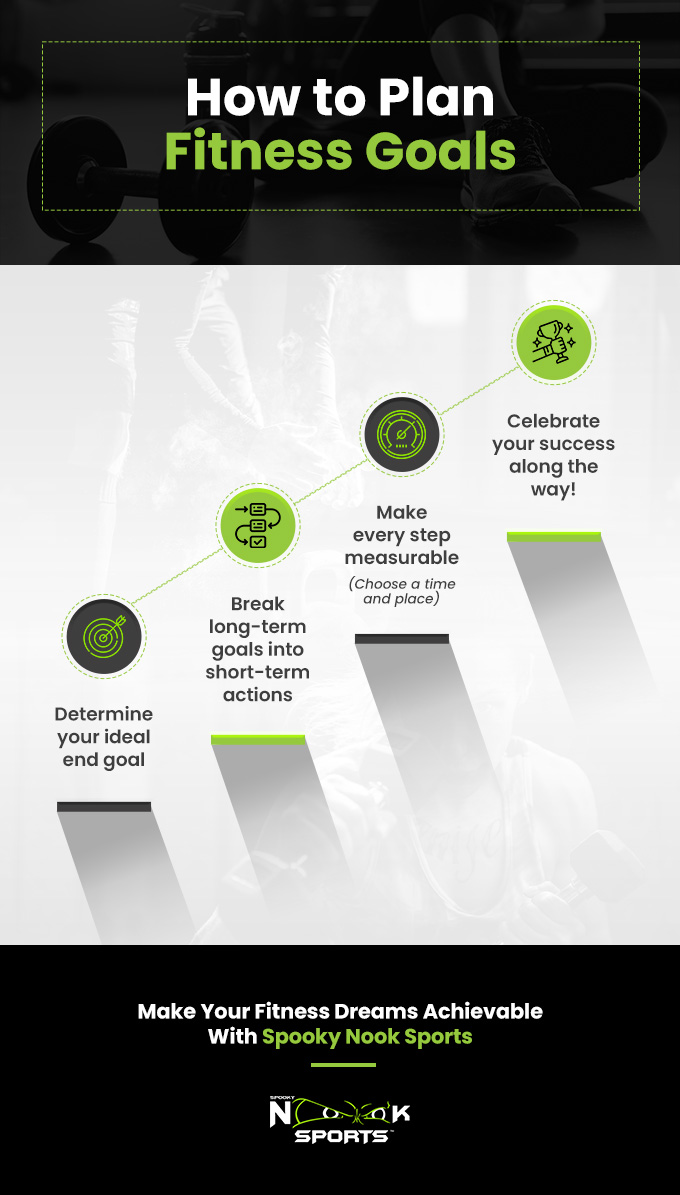Blitz News Digest
Stay updated with the latest trends and insights.
Fitness Goals That Won't Break the Scale
Achieve your fitness goals without obsessing over the scale! Discover effective tips for a healthier, happier you today!
How to Set Realistic Fitness Goals That Focus on Health, Not Numbers
Setting realistic fitness goals is essential for fostering a positive relationship with health and wellness. Instead of fixating on numerical targets like weight or miles run, consider establishing goals that emphasize overall health. For instance, rather than aiming to lose a specific number of pounds, aim to incorporate more whole foods into your diet or increase your daily activity levels. This shift in focus allows you to celebrate small, progressive changes in your lifestyle, ensuring that your fitness journey remains enjoyable and manageable.
To effectively set these health-centric goals, it can be helpful to use the SMART criteria: Specific, Measurable, Achievable, Relevant, and Time-bound. Start by identifying specific changes you want to make, such as committing to a weekly yoga class or drinking more water each day. Ensure that your goals are measurable by tracking your progress in a journal or through mobile apps. Always remain flexible and adjust your goals as needed, prioritizing your mental and physical well-being over arbitrary numbers.

5 Non-Scale Victories That Indicate Progress
When it comes to personal health and wellness journeys, celebrating non-scale victories can be just as important as weight loss numbers. These victories often signify improvements in overall well-being and fitness that may not be immediately visible on the scale. For instance, one of the most rewarding non-scale victories is noticing an increase in energy levels. When you begin to feel more energetic and less fatigued throughout the day, it indicates that your body is adapting to a healthier lifestyle.
Another significant non-scale victory is fitting into clothes that previously felt tight or uncomfortable. When your wardrobe starts to reflect the changes you've made in your lifestyle, it's a clear indication of progress, both physically and mentally. Additionally, non-scale victories can include improved strength or endurance, such as completing a workout that once challenged you or easily climbing a flight of stairs. Each of these moments serves as powerful reminders that progress encompasses more than just a number on the scale.
What Fitness Goals Can Help Improve Your Well-Being Beyond Weight Loss?
While many people associate fitness goals primarily with weight loss, there are numerous other objectives that can enhance your overall well-being. Focusing on goals such as increasing strength, improving endurance, or mastering flexibility can lead to significant physical and mental health benefits. For instance, setting a goal to run a certain distance can boost your cardiovascular health and energy levels, while participating in yoga can enhance your flexibility and reduce stress. These goals can create a well-rounded fitness routine that nurtures both your body and mind.
Additionally, establishing fitness goals that prioritize mental health can profoundly affect your quality of life. Activities like group fitness classes or team sports can foster social connections, reducing feelings of loneliness and boosting confidence. Engaging in regular physical activity also triggers the release of endorphins, the body’s natural mood lifters. Thus, focusing on goals related to enjoyment, social interaction, and overall well-being can lead to a more sustainable and fulfilling fitness journey, moving beyond the scale and creating lasting positive change.